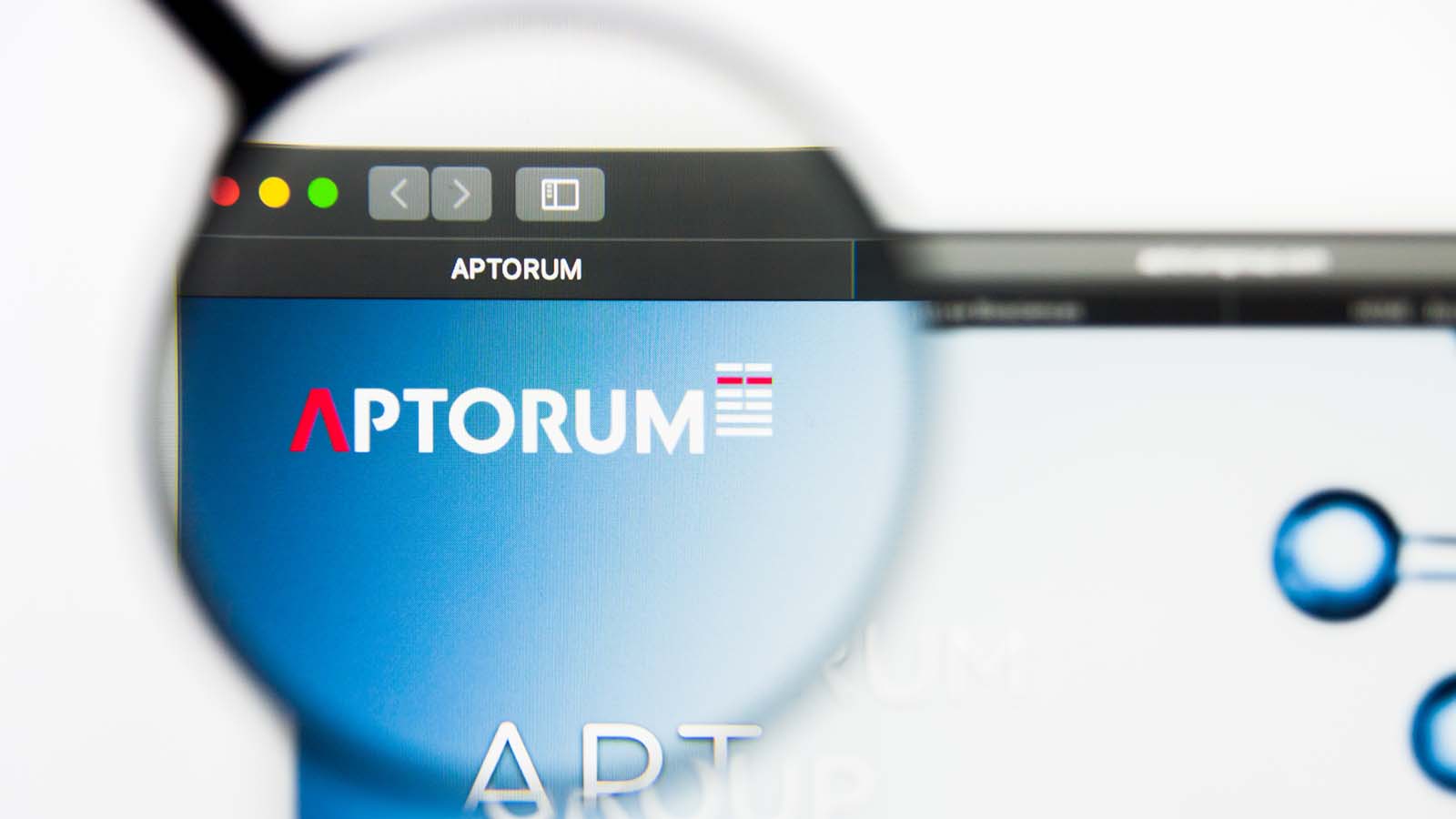Like many small biotech companies, Aptorum Group (NASDAQ:APM) is definitely a high-risk, high-reward name. But I think the risk-reward ratio for APM stock is favorable at its current levels.

On Sept. 29, Aptorum announced that it had made a deal to create novel rapid pathogen identification and detection diagnostics (RPIDD) technology in partnership with the Singaporean government.
Crucially — according to Aptorum — the RPIDD technology “has been able to detect pathogens — ranging from bacteria, fungi and viruses in an unbiased manner.” That statement indicates that APM has just gained access to liquid biopsy technology that can be used to detect infections. And this new practice has many upsides.
How is this important to investors? It will likely give the company easy access to a giant, addressable market.
Why Liquid Biopsies Are Important to APM Stock
Up until the last year or two, doctors have used “invasive sampling of the infected tissue” to determine whether patients have “life-threatening deep-seated infections.”
But even these invasive tests often do not definitively determine whether or not a patient is infected. They also do not enable doctors to determine exactly what organism has infected a patient. Likewise, some molds that can cause invasive fungal infections (IFI) cannot be detected by the tests at all.
Liquid biopsies, on the other hand, are carried out by collecting a patient’s blood and then analyzing the “cell-free plasma” using “next-generation sequencing.” With this technique, researchers attempt to find the DNA of pathogens such as molds, fungus, and bacteria that have been released by “dead and dying cells.”
Essentially, this procedure is much less invasive than the standard of care. What’s more — for many patients — it will be far more accurate than conventional testing methods. On the financial end, that means it could pay off greatly.
A Huge Potential Market
According to a recent press release by Research and Markets, the global liquid biopsy market will be worth “$12.9 billion by 2030.” The website reports that, while the method has been used before to assess cancers, “transplant rejection assessment services and infectious disease services based on liquid biopsies are set to become eminent parts of current practices.”
Going off of this, let’s say that the total market is worth $6 billion by 2025, with the infectious disease segment accounting for $3 billion of the total. If Aptorum is able t0 capture 10% of the $3 billion, or $300 million, the market capitalization of APM stock could easily be $600 million — or around 7.7 times its current level — in 2025.
That means the shares, which currently have a market cap of $77 million, could surge 680% in five years. And that, of course, would be a great return.
Meaningful Risk, But a Huge Potential Niche
Unfortunately for APM stock, it does face competition. Multiple other companies have launched offerings that are similar to Singapore’s RPIDD development. For example, Research and Markets reported that Guardant Health (NASDAQ:GH), CareDx (NASDAQ:CDNA) and Chronix Biomedical have all already stepped into the space.
And of course, despite APM’s confidence in the effectiveness of Singapore’s RPIDD, problems with the technology could still arise in the future. Nothing is guaranteed.
But on a positive note for Aptorum, Research and Markets also reported that “North America is expected to retain a leading position throughout the forecast period 2020-2030, followed by Europe.” Based on that statement, one could suppose that liquid biopsies are not yet being widely used in Asia for detecting infections. Or, at least not nearly as much as in the West. Given APM’s new partnership with Singapore, this means the company could have a pioneering edge in the huge Asian market.
Bottom Line
Aptorum’s partnership with Singapore seems to have given the company access to cutting-edge technology that — according to APM — works very well. And while the company’s competition does create meaningful risk, I believe that it’s likely to score big opportunities in Asia. That makes APM stock worth buying for risk-tolerant, longer-term growth investors.
On the date of publication, Larry Ramer did not have (either directly or indirectly) any positions in the securities mentioned in this article.
Larry Ramer has conducted research and written articles on U.S. stocks for 13 years. He has been employed by The Fly and Israel’s largest business newspaper, Globes. Larry began writing columns for InvestorPlace in 2015. Among his highly successful, contrarian picks have been GE, solar stocks, and Snap. You can reach him on StockTwits at @larryramer
